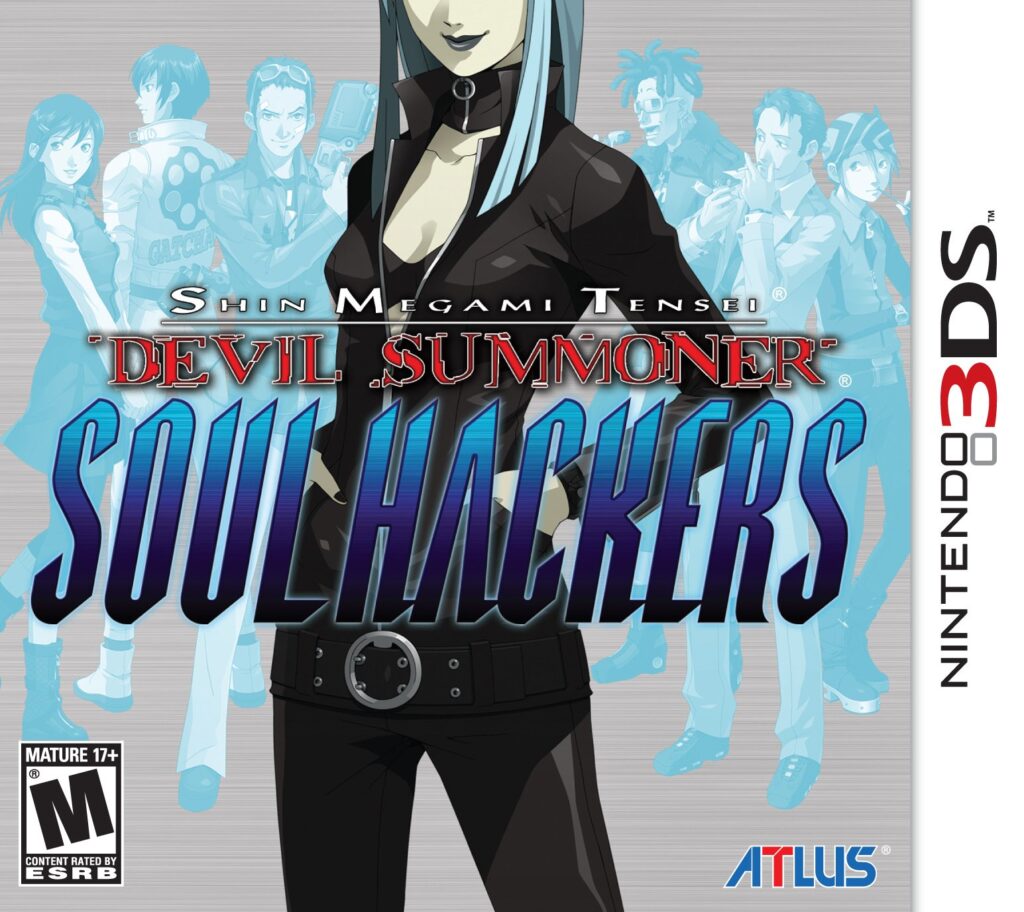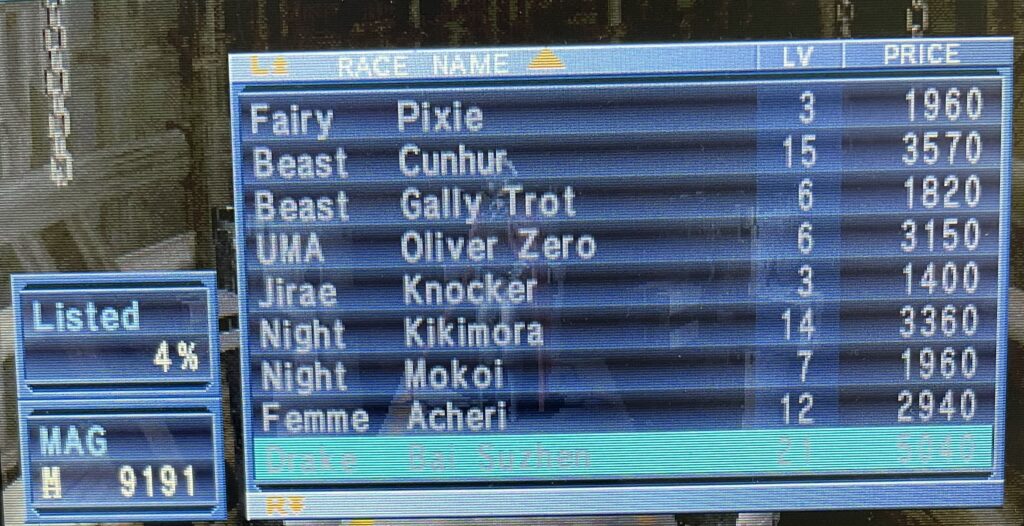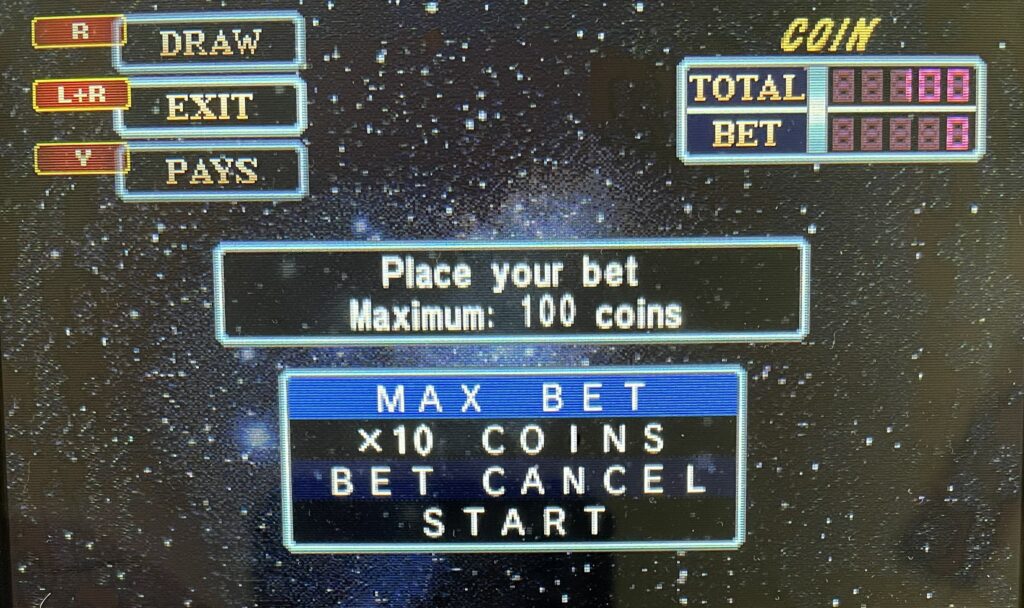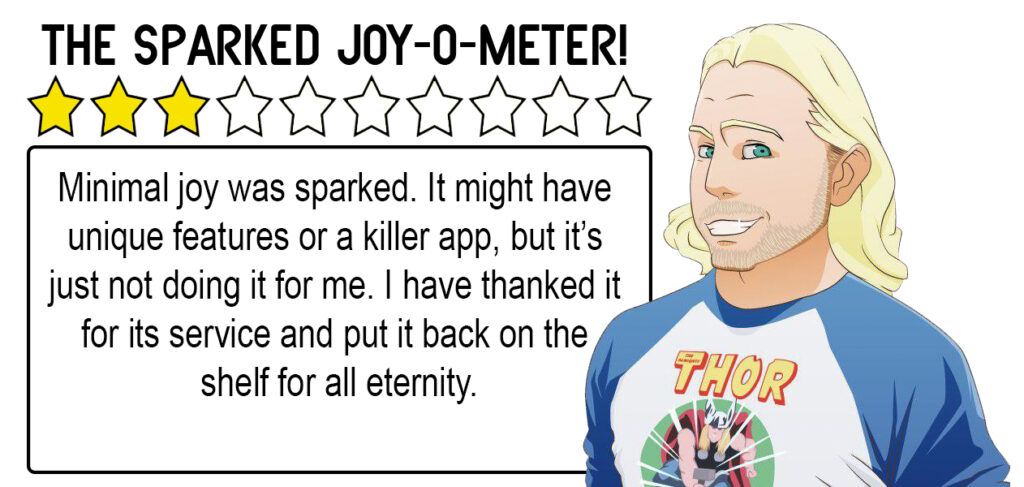Demon Summoner: Soul Hackers

Keeping The Lights On
Well, damn. Has it really been 2+ years since my last blog post? I guess it’s time to dust off this Pooh Corner since I’m paying to keep the lights on. There have been quite a few updates since April 2021. First, I’m still teaching and enjoying my courseload. Second, my book, The History and Allure of Interactive Visual Novels, hit shelves this past July. Check it out because it was a hoot to write! Third, I’ve made some great gym gains! All it took was two years of working with a trainer who corrected my form on virtually everything (lol)! That said, I probably need to plan a cut here within the next few days because this bulk got dirty. Finally, I was able to visit Japan in 2023, a trip 20 years in the making. Admittedly, I didn’t get to do everything I wanted, nor did Japan grant me any particularly profound vision quests about my future, but I will certainly plan another trip here in the coming years (I honestly could probably live on a bullet train). Given that I’ve knocked out my current publication responsibilities, I can devote some time to blogging about my video game collection. Let’s go ahead and jump into the Shin Megami Tensei JRPG Demon Summoner: Soul Hackers for the 3DS.
Since I like to provide some personal context in these writeups, I’ve got two cool stories to share. First, Soul Hackers was originally released on the Sega Saturn in 1997 (in 1999, it was ported to the Sony PlayStation). Thanks to my aforementioned book, I’ve become an accidental scholar on video game nostalgia, and that particular console war happens to be etched in my memory. While I didn’t play Soul Hackers when it was initially released, I did play Revelations: Persona and Persona 2: Eternal Punishment. Both were entry points for me into SMT RPGs. In fact, Eternal Punishment is one of my favorite JRPGs because I lived in South Korea when I played it, and the vibe remains hauntingly intriguing. To date, I don’t think I’ve encountered a game that so artfully combined an oppressive yet mystical aura in a contemporary setting, Lovecraftian themes, mature characters (who were in their 20’s), and a baller soundtrack. I was drawn to Soul Hackers because the vibe and overhead world looked similar to Eternal Punishment, and I was hoping to cash in on some nostalgia. Second, I purchased Soul Hackers back in 2019 after my mom and I bought matching 3DS units at the Base Exchange. How the store still sold brand new 3DS units in 2019 is a mystery, but I’m certainly not complaining. Anywho, as soon as I got my unit, I purchased Soul Hackers because I had my eye on it. Four years later, I’ve finally found enough time to construct a review. While I wish I could say these memories translated into a positive gaming experience, Soul Hackers is arguably the weakest SMT game I’ve played.
The Good
To be certain, Soul Hackers had a promising start. The overhead map immediately reminded me of Eternal Punishment; some of the character portraits are lovely; and the music is atmospheric, even though the soundtrack pales in comparison to both Innocent Sin and Eternal Punishment. The vibe, while considerably less oppressive than Persona 2, was unique because the inhabitants of Amami City routinely plug into a virtual reality paradise called Paradigm X. This is a world where demons exist alongside hackers, so gamers familiar with SMT games will immediately recognize the demon-summoning system.
The Bad
Unfortunately, Soul Hackers didn’t hold my interest thanks in large part to a punishing battle system and general monotony that took me out of the story. Like other SMT games, including Strange Journey, Soul Hackers is a first-person dungeon crawler. However, the dungeons don’t offer much variety and get repetitive quickly. Further, the combat system also emphasizes a first-person perspective, meaning you can’t actually see much on the screen besides the opposing demons (your party, spells, etc.). I could look beyond both aspects if the game’s combat were actually fun, but the grind was pretty uninspiring due to multiple factors. First, leveling up, even by SMT standards, is exceptionally difficult. I eventually was stuck in a pattern in which the current dungeon had overpowered enemies that decimated my party, but the previous dungeon’s demons didn’t provide enough EXP to level up consistently. Second, compared to other SMT games, demons don’t level up alongside human characters in Soul Hackers. Instead, you have to input commands that will increase their loyalty so that they don’t leave your party (a demon’s personality determines which skills they prefer). Dungeon exploration and battles are also confounded by the game’s second currency: magnetite. Compared to yen, which the gamer can spend on armor, weapons, and items, magnetite is a life source for demons in the party. The gamer can configure their party so that it will have two human characters and four demons. However, summoned demons will go through magnetite to the point that they will lose HP if the magnetite stock depletes. I eventually found myself crawling through dungeons with my two human characters just so that I wouldn’t incur any penalties…until I died in a tough dungeon. These penalties might not be problematic if this was the only way magnetite was used, but it’s unfortunately the currency for summoning demons at Hotel Goumaden. Remember that since demons don’t level up, the gamer has to constantly fuse/create/buy new demons to stay ahead of the game’s difficulty curve. Suffice it to say, buying demons is expensive, and the gamer will have to manage how much magnetite they need to have available given its importance in battle. Finally, Soul Hackers might be the only RPG I’ve encountered in which the protagonist doesn’t have any magical powers. You read that correctly. While demons offered some variety when it came to strategy, my MC literally just attacked the entire time. Taken together, these factors didn’t produce a particularly inviting battle experience, even though I love battles in other iterations of SMT games.

Genre-Melding?
Since I’m still interested in finding games that meld generic conventions, I didn’t see many examples of this practice in Soul Hackers. The casino feature does allow gamers to play games like Poker, which appeared in Innocent Sin and Eternal Punishment. Granted I didn’t finish Soul Hackers, so feel free to let me know if there are more features of multiple gaming genres, but this was the only example I encountered in an otherwise straight up turn-based experience.

Conclusion
During the Roast of Justin Bieber, Hannibal Burress quipped, “They say you roast the ones you love, but I don’t like you at all, man.” This zinger, as cruel as it may seem, reflects my feelings towards Soul Hackers. I enjoyed moments in the game, but I was often frustrated and exhausted to the point that I just didn’t see any incentive to keep playing. While the atmosphere was unique in that I did feel like I was transported to a retro future Japanese city, it wasn’t enough to salvage what I feel might be the least impressive combat system I’ve encountered in a Shin Megami Tensei RPG. I guess if I really want to relive my past memories with Persona 2, I can just play that instead. Don’t fret, though. I plan on reviewing Shin Megami Tensei V here in a few weeks, so that review should be a bit more positive.
